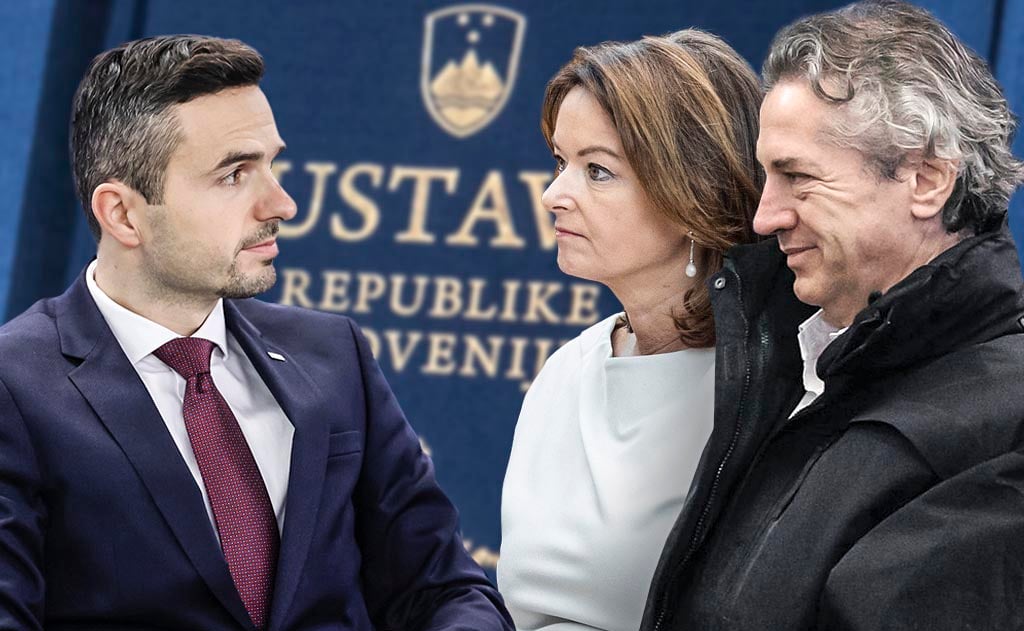On Friday, the Constitutional Commission of the National Assembly held an urgent meeting on the appointment of judges. As the leader of the opposition pointed out, the government is in a hurry to cement the 100-percent monopoly of the transitional left in the judiciary, and it is being aided and abetted by the New Slovenia party (Nova Slovenija – NSi), which even leads the commission and wants to get things done quickly, through the use of the emergency procedure. This is a complete hijacking of the last pillar of the separation of powers: the judicial branch of government.
Namely, three coalition parties have proposed that the power to appoint judges be transferred from the National Assembly to the President of the Republic. On the proposal of the Judicial Council, judges would no longer be elected by the National Assembly, but would be appointed by each successive President of the Republic. The coalition’s proposal to amend the Constitution is, of course, aimed at strengthening the politicisation of the judiciary.
The Judicial Council believes that such an appointment would reduce the possibility of politicisation of the procedure. The Slovenian Democratic Party (Slovenska demokratska stranka – SDS), on the other hand, believes that this is an attack on the constitutional order, as it takes away an important power from the National Assembly. “When you remove the debate on candidates that a certain group believes are problematic from the National Assembly, you will do absolutely nothing for the quality of the judicial system,” SDS MP Jože Tanko commented on the matter during the latest debate in the National Assembly.
The decision to start the process of amending the Constitution was supported by 61 MPs in November, including the NSi party MPs. This finally made it clear that a new, enlarged coalition had been formed, which also included New Slovenia as an auxiliary to any coalition.
What game is the NSi party playing?
The NSi party is making support for the constitutional amendments conditional on a change in the composition of the Judicial Council, which would now have 15 members (of whom seven would be elected by the National Assembly, with a two-thirds majority). But the essence of the constitutional amendment is that the power to appoint judges will now be in the hands of the President of the Republic and no longer in the National Assembly, and the NSi party is apparently counting on coalition cooperation, especially in the event that the “godfathers” in the coalition tactically drive the Left party (Levica) away.
A dangerous game
The NSi party is also trying to keep its distance from the SDS party and play the role of a “constructive opposition,” while on the other hand, it is waiting for the green light to take over a portfolio – most of all the infrastructure portfolio, headed by Alenka Bratušek, who is already rumoured to be on Golob’s list for removal. Despite the resignation of Valentin Hajdinjak from the top of the Motorway Company of the Republic of Slovenia (DARS), the NSI party will apparently continue to play the role of a silent partner, like the Left party did during the Šarec government. It was no coincidence that the Freedom Movement MP Lucija Tacer labelled the NSi party as a coalition partner. It is clear that the NSI party is playing with fire. Collaboration with an extremely unpopular government and an unpredictable prime minister is certainly not something that attracts centre-right voters with mild conservative leanings. By playing a double game, the party could quickly suffer the repeat of its fate from 2008, when they were left outside the door of the National Assembly. Meanwhile, rumours of some kind of reanimation of the old Slovenian Christian Democrats party (Slovenski krščanski demokrati – SKD) under the patronage of the evergreen Lojze Peterle are growing stronger…
The question is whether thanks to the opportunistic collaboration of a part of the right with the transitional left, we will get another permanent constitutionally enshrined cementing of the left in power: it is worth noting that, thanks to the collaboration of the late Slovenian People’s Party (Slovenska ljudska stranka – SLS) and the Liberal Democracy of Slovenia (Liberalna demokracija Slovenije – LDS), today we have a mutant proportional electoral system, known for its incredible anomalies, instead of a majority voting system, which is what the Slovenian voters wanted in the 1996 referendum.
I. K.


